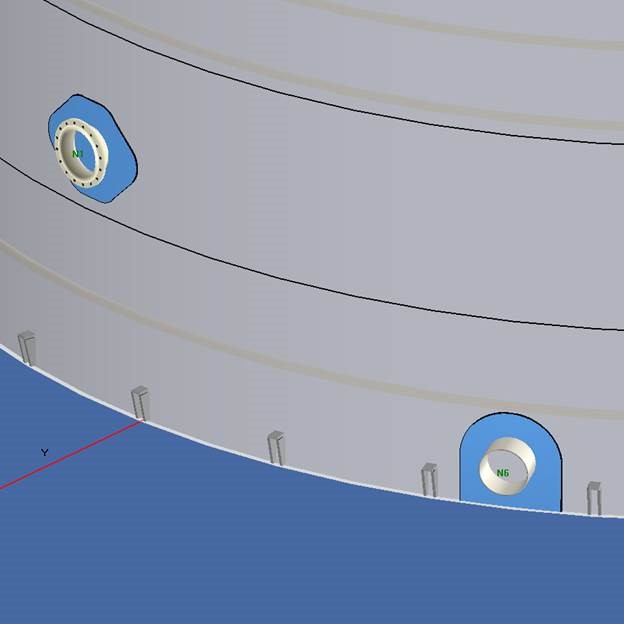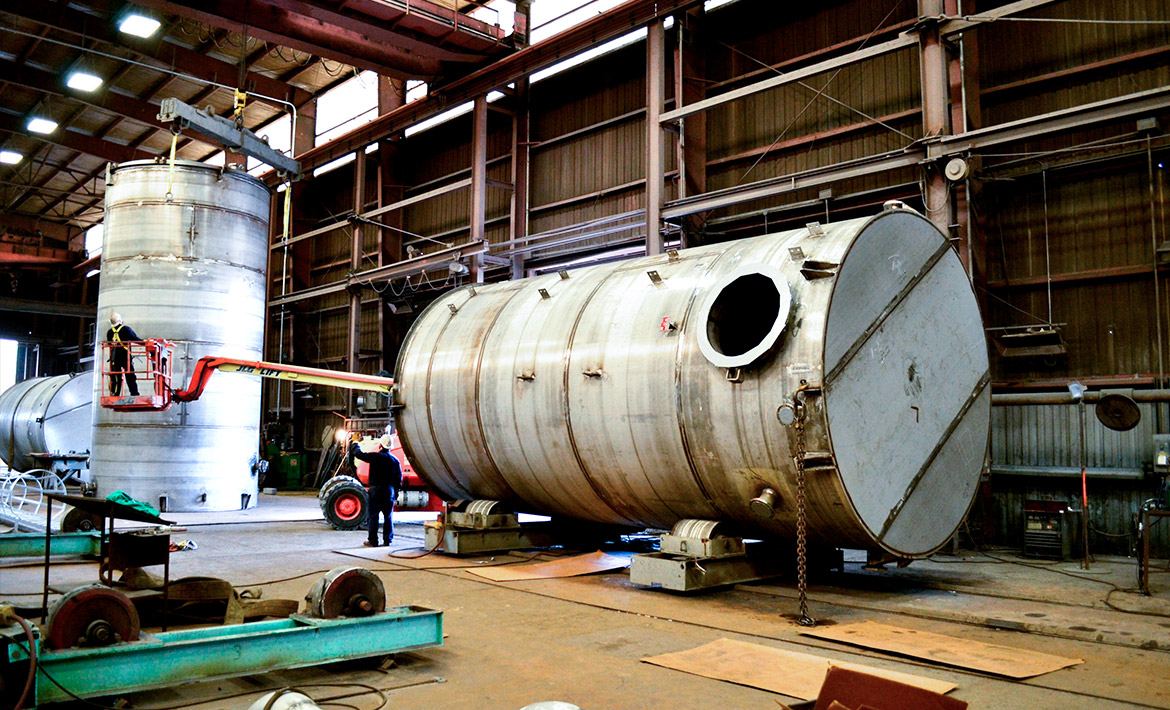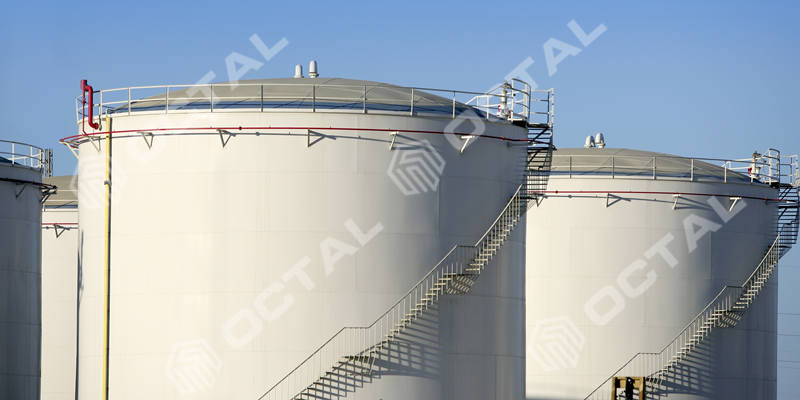The API 650 Welding Inspection Reference Sheet for Thorough Project Evaluations
The Benefits of Welding Inspection for Enhanced Safety And Security and Performance
Welding assessments are important for ensuring that frameworks fulfill strict sector requirements. They play an essential duty in recognizing defects early, thus enhancing safety and reducing the risk of catastrophic failings. Additionally, these assessments can lead to considerable price savings by protecting against expensive repair work and downtime. As companies intend for better performance and dependability, the significance of a durable inspection procedure can not be overstated. What other benefits might arise from a commitment to detailed welding examinations?
Making Sure Compliance With Industry Requirements
Assuring conformity with market standards is important for keeping top quality and safety and security in welding jobs. Sticking to recognized methods not just safeguards employees but likewise improves the toughness and performance of the end product. Welding examinations performed at various stages of the procedure assistance recognize any type of inconsistencies from these criteria, making it possible for timely rehabilitative activities. This positive method minimizes the danger of failures that might result from low quality workmanship.
Additionally, compliance with industry requirements fosters trust among stakeholders, consisting of customers, governing bodies, and the workforce. It symbolizes a dedication to excellence and responsible practices, which can cause raised service chances and an one-upmanship out there - API 650 Welding Inspection. Routine evaluations likewise assure that products and methods made use of align with the most recent technical improvements and safety regulations. Inevitably, adherence to industry standards is not merely a regulatory demand however a foundation of quality assurance in welding jobs
Enhancing Safety With Very Early Detection of Problems
While the key goal of welding evaluations usually fixates compliance, they play a crucial role in improving safety and security by making it possible for the early detection of issues. Determining problems such as insufficient blend, fractures, or porosity throughout examinations can substantially alleviate the danger of devastating failings. Early detection permits for prompt treatments, making certain that faulty welds do not endanger structural honesty.
Furthermore, methodical evaluations cultivate a society of safety within companies by emphasizing the importance of high quality control. This positive strategy not only secures personnel yet likewise safeguards the surrounding atmosphere. Regular inspections can disclose trends in issue occurrence, allowing for changes in welding methods and training programs to resolve underlying concerns.
Consequently, welding assessments work as an important protect, strengthening total security and performance by identifying defects before they intensify into severe risks. This commitment to top quality directly adds to the longevity and dependability of bonded frameworks.
Reducing Costs by Preventing Failings
By applying thorough welding evaluations, organizations can successfully decrease prices related to failings and remodel. The proactive identification of defects throughout the welding process minimizes the threat of catastrophic failures that can result in expensive fixings or substitutes. Early discovery permits for timely treatments, which protects against the escalation of minor problems right into major issues that strain budgets and sources. Furthermore, by making sure that welds satisfy specified requirements, organizations can avoid hold-ups in job timelines brought on by the need for comprehensive rework or added inspections later at the same time. This not only conserves money but likewise improves functional effectiveness. Furthermore, a track record for quality craftsmanship can lead to enhanced client fulfillment and repeat company, further adding to economic security. In general, spending in welding inspections is a critical technique that promotes cost savings while securing the stability of bonded structures.
Improving Efficiency and Longevity of Frameworks


Welding assessments play an important function in improving the efficiency and longevity of frameworks, as they validate that welds are executed to the highest standards. By recognizing issues early in the welding procedure, assessments avoid weaknesses that could jeopardize structural honesty. This positive method assurances that the materials made use of satisfy required specifications, therefore optimizing their load-bearing capability and strength.
Constant monitoring of welding methods adds to the general high quality of construction projects. When welds are verified for compliance with industry criteria, the potential for exhaustion and failure with time is significantly decreased. Frameworks that are developed with appropriately checked welds are most likely to experience less maintenance problems and improved longevity.
Ultimately, strenuous welding inspections not just bolster the immediate effectiveness of a structure but also prolong its operational life-span, offering long-term worth to both building contractors and end-users alike.
Fostering a Culture of High Quality and Dependability
A dedication to top quality and integrity in welding methods considerably adds to the general success of construction tasks. When organizations focus on these worths, they cultivate a culture that urges meticulous focus to detail and adherence to market requirements. This culture not just enhances the ability degree of welders however also promotes liability and team effort amongst all stakeholders included in the task.

Normal welding evaluations function as a keystone in this social shift, strengthening the significance of consistent performance and precaution (API 650 Welding Inspection). By carrying out rigorous assessment methods, business can identify potential imperfections early, mitigating threats and avoiding pricey rework. Furthermore, a concentrate on high quality and dependability instills confidence amongst companions and customers, resulting in more powerful relationships and boosted credibilities
Ultimately, promoting a culture of top quality and dependability in welding methods not only boosts project outcomes but additionally guarantees long-term sustainability and success in the building industry.
Often Asked Inquiries
What Credentials Should a Welding Inspector Have?
A welding examiner need to have pertinent qualifications, such as AWS CWI or CSWIP. In addition, they must have experience in metallurgy, welding procedures, and evaluation methods, together with strong logical skills and attention to information for effective analyses.

Exactly How Commonly Should Welding Inspections Be Carried Out?
Welding evaluations need to be performed frequently, ideally after each substantial stage of the welding procedure. Additionally, regular assessments need to happen based on job needs, service conditions, and regulative criteria to guarantee continuous top quality and security.
What Equipment Are Made Use Of During Welding Inspections?
Welding inspections make use of various tools, consisting redirected here of ultrasonic testers, magnetic particle testers, helpful resources aesthetic evaluation tools, and radiographic tools. Each device offers a specific objective, guaranteeing weld top quality and architectural honesty with detailed exam and analysis.
Can Welding Inspections Be Performed Remotely?
Welding evaluations can certainly be done remotely using innovative modern technologies such as drones and specialized electronic cameras. These devices allow assessors to analyze welding high quality and honesty from a range, improving performance and security in various atmospheres.
What Are the Typical Sorts Of Welding Issues?
Common kinds of welding problems consist of porosity, fractures, incomplete blend, damaging, and slag incorporation. These issues can compromise the integrity and toughness of welds, bring about possible failures in structural applications if not dealt with effectively.
Welding assessments are vital for making certain that frameworks fulfill rigid market requirements. Welding inspections performed at different phases of the process aid determine any kind of deviations from these requirements, making it possible for prompt corrective activities. Welding evaluations play a necessary duty in improving the efficiency and durability of frameworks, as they validate that welds are carried out to the greatest standards. Welding examinations should be carried out regularly, ideally after each significant phase of the welding procedure. API 650 Welding Inspection. Welding assessments use different devices, including Get More Info ultrasonic testers, magnetic bit testers, visual inspection devices, and radiographic devices